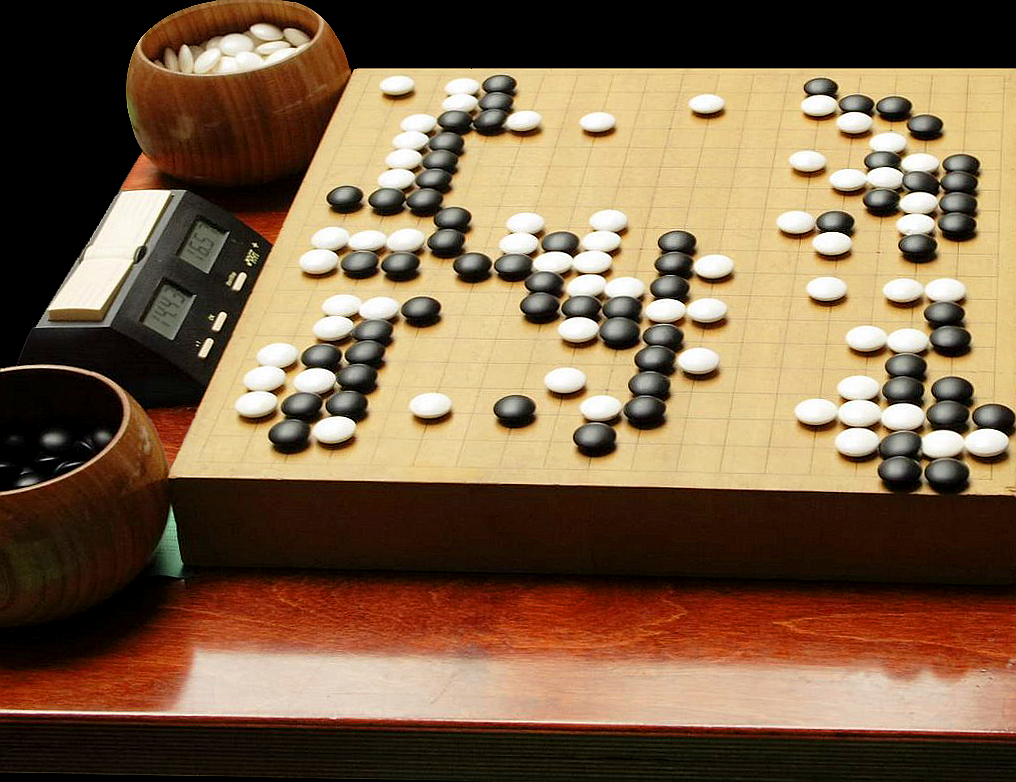|
Makoto Sasaki (shogi)
is a Japanese professional shogi player ranked 7-dan. Promotion history The promotion history for Sasaki is as follows: * 6-kyū: 1993 * 1-dan: 1997 * 4-dan: April 1, 2001 * 5-dan: April 19, 2006 * 6-dan: February 22, 2012 * 7-dan: March 11, 2020 Awards and honors Sasaki received the Japan Shogi Association's 35th Annual Shogi Award The Annual Shogi Awards (将棋大賞 ''shōgi taishō'') are a number of prizes awarded yearly by the Japan Shogi Association to professional and amateur shogi players who have achieved particular success. The first Annual Shogi Awards were pre ... for "Most Consecutive Games Won" for the 20078 season. References External links * Official blog "晴耕雨読" (''Seikōudoku'') *ShogiHubProfessional Player Info · Sasaki, Makoto 1980 births Japanese shogi players Living people Professional shogi players from Tokyo People from Nakano, Tokyo {{Shogi-stub ... [...More Info...] [...Related Items...] OR: [Wikipedia] [Google] [Baidu] |
Nakano, Tokyo
is a special ward in Tokyo, Japan. The English translation of its Japanese self-designation is Nakano City.About Nakano City " Retrieved March 10, 2013. As of May 1, 2015, the ward has an estimated population of 322,731, and a population density of 20,701 persons per km2. The total area is 15.59 km2. Nakano is the most densely populated city in Japan. History The ward was founded on October 1, 1932, when the towns of Nogata and Nakano were absorbed into the former Tokyo City as Nakano Ward. The present administration dates from March 15, 1947, when the Allied occupation reformed the administration of Tokyo-to. * 1447:[...More Info...] [...Related Items...] OR: [Wikipedia] [Google] [Baidu] |
Dan (rank)
The ranking system is used by many Japanese, Okinawan, Korean, and other martial art organizations to indicate the level of a person's ability within a given system. Used as a ranking system to quantify skill level in a specific domain, it was originally used at a Go school during the Edo period. It is now also used in most modern Japanese fine and martial arts. Martial arts writer Takao Nakaya claims that this dan system was first applied to martial arts in Japan by Kanō Jigorō (1860–1938), the founder of judo, in 1883, and later introduced to other East Asian countries. In the modern Japanese martial arts, holders of dan ranks often wear a black belt; those of higher rank may also wear either red-and-white or red belts depending on the style. Dan ranks are also given for strategic board games such as Go, Japanese chess (''shōgi''), and renju, as well as for other arts such as the tea ceremony (''sadō'' or ''chadō''), flower arrangement ('' ikebana''), Japanese ca ... [...More Info...] [...Related Items...] OR: [Wikipedia] [Google] [Baidu] |
Professional Shogi Player
A professional shogi player (将棋棋士 ''shōgi kishi'' or プロ棋士 ''puro kishi'' "professional player") is a shogi player who is usually a member of a professional guild of shogi players. There are two categories of professional players: regular professional and women's professional. All regular professional shogi players are members of the Japan Shogi Association (JSA). However, only regular professional players, who are all male, are considered to be full-fledged members. Women's professional players belong to groups distinct from regular professional players. In Japanese, the term 棋士 ''kishi'' only refers to regular professional players to the exclusion of women's professionals, who are termed 女流棋士 ''joryū kishi.'' History During the Edo period (1603-1868), shogi followed an iemoto system centered around three families (schools): the , the and the . Titles such as Meijin were hereditary and could only be held by members of these three families. Thes ... [...More Info...] [...Related Items...] OR: [Wikipedia] [Google] [Baidu] |
Dan (rank)
The ranking system is used by many Japanese, Okinawan, Korean, and other martial art organizations to indicate the level of a person's ability within a given system. Used as a ranking system to quantify skill level in a specific domain, it was originally used at a Go school during the Edo period. It is now also used in most modern Japanese fine and martial arts. Martial arts writer Takao Nakaya claims that this dan system was first applied to martial arts in Japan by Kanō Jigorō (1860–1938), the founder of judo, in 1883, and later introduced to other East Asian countries. In the modern Japanese martial arts, holders of dan ranks often wear a black belt; those of higher rank may also wear either red-and-white or red belts depending on the style. Dan ranks are also given for strategic board games such as Go, Japanese chess (''shōgi''), and renju, as well as for other arts such as the tea ceremony (''sadō'' or ''chadō''), flower arrangement ('' ikebana''), Japanese ca ... [...More Info...] [...Related Items...] OR: [Wikipedia] [Google] [Baidu] |
Japan Shogi Association
The , or JSA, is the primary organizing body for professional shogi in Japan. The JSA sets the professional calendar, negotiates sponsorship and media promotion deals, helps organize tournaments and title matches, publishes shogi-related materials, supervises and trains apprentice professionals as well as many other activities. History For much of its early history, shogi followed an iemoto system centered around three families (schools): the , the and the . The Meijin title was hereditary and could only be held by members of these three families. These three schools were supported by the Tokugawa shogunate and thus controlled the professional shogi world up until 1868 when the Meiji Restoration began. By the time , the eighth and last head of the Itō school and the 11th Hereditary Meijin, had died in 1893, the influence of the families had decreased to such an extent that they had no real power at all. In 1921, there were three groups of professional players in the Tokyo ar ... [...More Info...] [...Related Items...] OR: [Wikipedia] [Google] [Baidu] |
Professional Shogi Player
A professional shogi player (将棋棋士 ''shōgi kishi'' or プロ棋士 ''puro kishi'' "professional player") is a shogi player who is usually a member of a professional guild of shogi players. There are two categories of professional players: regular professional and women's professional. All regular professional shogi players are members of the Japan Shogi Association (JSA). However, only regular professional players, who are all male, are considered to be full-fledged members. Women's professional players belong to groups distinct from regular professional players. In Japanese, the term 棋士 ''kishi'' only refers to regular professional players to the exclusion of women's professionals, who are termed 女流棋士 ''joryū kishi.'' History During the Edo period (1603-1868), shogi followed an iemoto system centered around three families (schools): the , the and the . Titles such as Meijin were hereditary and could only be held by members of these three families. Thes ... [...More Info...] [...Related Items...] OR: [Wikipedia] [Google] [Baidu] |
Annual Shogi Award
The Annual Shogi Awards (将棋大賞 ''shōgi taishō'') are a number of prizes awarded yearly by the Japan Shogi Association to professional and amateur shogi players who have achieved particular success. The first Annual Shogi Awards were presented in 1974. Winners Below is a table of the awards given and the award winners for each year. Kōzō Masuda Awards The Kōzō Masuda Award (升田幸三賞 ''Masuda Kōzō shō'') and the Kōzō Masuda Special Prize (升田幸三賞特別賞 ''Masuda Kōzō shō takubetsu shō'') are two prizes awarded to professional or amateur players who have made an outstanding contribution to the development and evolution of shogi openings by way of innovation or excellence in shogi theory or tactics. The awards are named after the innovative player, Kōzō Masuda. The Masuda Award is given out yearly since 1995 while the Masuda Special Prize is awarded infrequently. Winners Masuda Award * 1995 (22nd Annual Shogi Awards) Kunio Naitō for the ... [...More Info...] [...Related Items...] OR: [Wikipedia] [Google] [Baidu] |
1980 Births
__NOTOC__ Year 198 (CXCVIII) was a common year starting on Sunday (link will display the full calendar) of the Julian calendar. At the time, it was known as the Year of the Consulship of Sergius and Gallus (or, less frequently, year 951 '' Ab urbe condita''). The denomination 198 for this year has been used since the early medieval period, when the Anno Domini calendar era became the prevalent method in Europe for naming years. Events By place Roman Empire * January 28 **Publius Septimius Geta, son of Septimius Severus, receives the title of Caesar. ** Caracalla, son of Septimius Severus, is given the title of Augustus. China *Winter – Battle of Xiapi: The allied armies led by Cao Cao and Liu Bei defeat Lü Bu; afterward Cao Cao has him executed. By topic Religion * Marcus I succeeds Olympianus as Patriarch of Constantinople (until 211). Births * Lu Kai (or Jingfeng), Chinese official and general (d. 269) * Quan Cong, Chinese general and ... [...More Info...] [...Related Items...] OR: [Wikipedia] [Google] [Baidu] |
Japanese Shogi Players
Japanese may refer to: * Something from or related to Japan, an island country in East Asia * Japanese language, spoken mainly in Japan * Japanese people, the ethnic group that identifies with Japan through ancestry or culture ** Japanese diaspora, Japanese emigrants and their descendants around the world * Japanese citizens, nationals of Japan under Japanese nationality law ** Foreign-born Japanese, naturalized citizens of Japan * Japanese writing system, consisting of kanji and kana * Japanese cuisine, the food and food culture of Japan See also * List of Japanese people * * Japonica (other) * Japonicum * Japonicus This list of Latin and Greek words commonly used in systematic names is intended to help those unfamiliar with classical languages to understand and remember the scientific names of organisms. The binomial nomenclature used for animals and plants i ... * Japanese studies {{disambiguation Language and nationality disambiguation pages ... [...More Info...] [...Related Items...] OR: [Wikipedia] [Google] [Baidu] |
Living People
Related categories * :Year of birth missing (living people) / :Year of birth unknown * :Date of birth missing (living people) / :Date of birth unknown * :Place of birth missing (living people) / :Place of birth unknown * :Year of death missing / :Year of death unknown * :Date of death missing / :Date of death unknown * :Place of death missing / :Place of death unknown * :Missing middle or first names See also * :Dead people * :Template:L, which generates this category or death years, and birth year and sort keys. : {{DEFAULTSORT:Living people 21st-century people People by status ... [...More Info...] [...Related Items...] OR: [Wikipedia] [Google] [Baidu] |
Professional Shogi Players From Tokyo
A professional is a member of a profession or any person who works in a specified professional activity. The term also describes the standards of education and training that prepare members of the profession with the particular knowledge and skills necessary to perform their specific role within that profession. In addition, most professionals are subject to strict codes of conduct, enshrining rigorous ethical and moral obligations. Professional standards of practice and ethics for a particular field are typically agreed upon and maintained through widely recognized professional associations, such as the IEEE. Some definitions of "professional" limit this term to those professions that serve some important aspect of public interest and the general good of society.Sullivan, William M. (2nd ed. 2005). ''Work and Integrity: The Crisis and Promise of Professionalism in America''. Jossey Bass.Gardner, Howard and Shulman, Lee S., The Professions in America Today: Crucial but Fragile. D ... [...More Info...] [...Related Items...] OR: [Wikipedia] [Google] [Baidu] |






